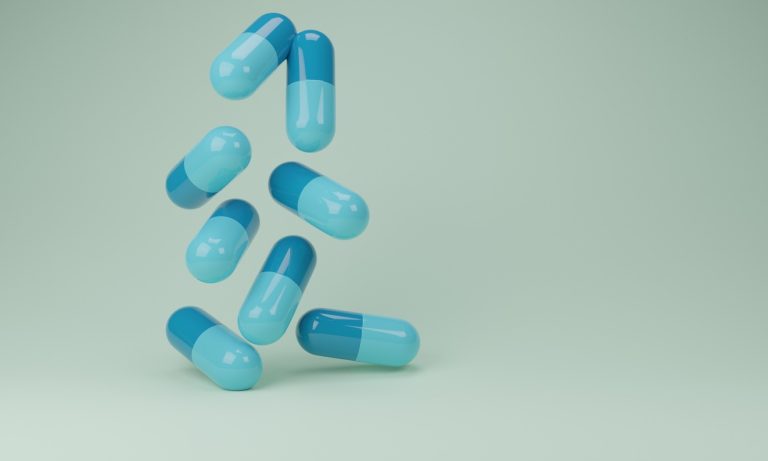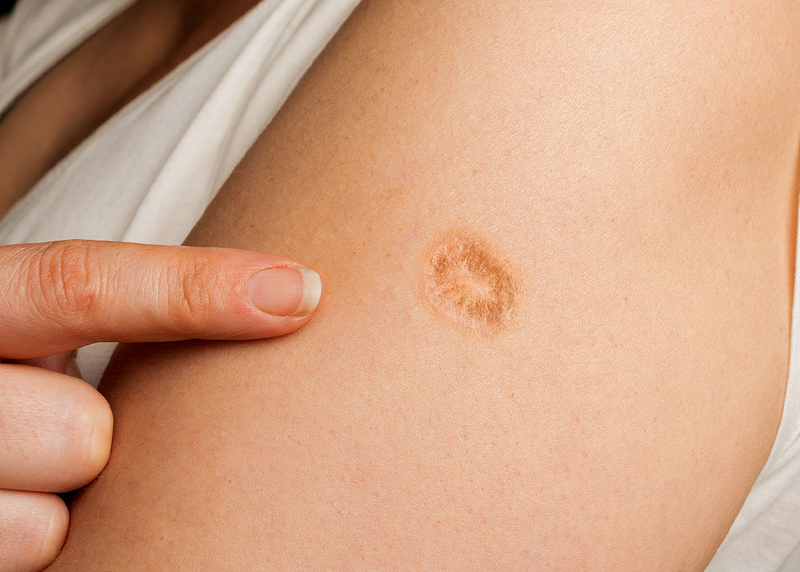Pfizer, Inc. plans to charge consumers more than double the price charged to the U.S. government for its COVID-19 anti-viral drug nirmatrelvir-ritonavir, sold under the brand name Paxlovid. A five-day course of the drug to treat COVID will soon cost patients $1,390. According to researchers, it costs Pfizer $13 to manufacture the supply of pills for a five-day course of treatment, making the price the company charges patients 100 times more than the cost of production.1
The U.S. government, which had previously been the sole supplier of Paxlovid, bought approximately 24 million courses of the drug at $530 each, for a total cost of about $127,200,000,00.2 3 The government supplied the drug to patients for free during the pandemic.4
Many health professionals doubt the benefits of Paxlovid, especially with the new high price tag. Anil Makam, MD, associate professor of Medicine at the University of California-San Francisco wrote on a Twitter that Paxlovid “wasn’t worth it for majority at $500. Definitely not worth it at $1,390.”5
Pfizer’s Paxlovid Drug to Treat COVID Has Serious Side Effects
The U.S. Food and Drug Administration (FDA) granted Pfizer an Emergency Use Authorization (EUA) to distribute Paxlovid in late 2021. By the time the anti-viral drug received full FDA licensure in May 2023, more than 11 million prescriptions had been filled. Adult patients with COVID, who are at risk of severe symptoms from the disease, and of being hospitalized and possibly dying, have been given full FDA approval to take the drug.6
Drug trials for Paxlovid have shown conflicting results. In clinical trials, the drug appeared to decrease hospitalizations and death by as much as 90 percent in unvaccinated individuals at high risk for COVID complications. Another trial showed no benefit to those who had been vaccinated and were considered to have a standard, rather than high, risk of severe COVID.
Paxlovid does not come without the risk of side effects, some of which may be severe. Side effects include allergic reactions, such as trouble swallowing, swelling of the lip, tongue and face, ulcers in the mouth, throat and genitals, blisters and peeling skin, along with liver problems, headache, vomiting, nausea, diarrhea, alteration in the sense of taste and blood pressure changes. The drug has also been shown to have interactions with various medications.7
In addition, COVID patients who take Paxlovid are at risk of suffering a rebound infection two to eight days after completing the five-day course of medication. Many patients initially feel better after a course of Paxlovid, then either come down with COVID symptoms or test positive for the SARS-CoV-2 virus about a week later.8
Pfizer Expects Profits from Paxlovid to Decline in 2023
While patients may actually pay less than the list price of Paxlovid due to rebates and other discounts, the high cost of the drug will affect the uninsured and increase out-of-pocket costs for insured patients.9
Pfizer has reached an agreement with the U.S. Department of Health and Human Services (HHS) to transition Paxlovid from the government to the direct-to-consumer market. The agreement provides that both uninsured and Medicaid/Medicare patients will continue to receive Paxlovid without cost until the end of 2024. The federal program will be extended through 2028 for the underinsured and the uninsured. HHS will also purchase an additional one million Paxlovid treatments as a stockpile in the event there is another surge in COVID cases.10
A Pfizer spokeswoman said:
Pricing for Paxlovid is based on the value it provides to patients, providers, and health care systems due to its important role in helping reduce COVID-19-related hospitalizations and deaths.11
Pfizer’s sales revenue in 2022 hit a record $100 billion, due largely to the COVID pandemic. The pharmaceutical giant earned $37.8 billion from sales of its Comirnaty messenger RNA (mRNA) COVID shots and $18.9 billion from Paxlovid. The combined sales of Comirnaty and Paxlovid alone was higher than Pfizer’s total sales revenue in 2019.12 The federal government gave a $445 million dollar grant to Pfizer and Pfizer’s business partner, the German pharmaceutical BioNTech SE, to aid in the development of Comirnaty mRNA COVID shots.
In August 2023, Pfizer projected that sales for Paxlovid would decrease by 58 percent compared to 2022. Pfizer has downgraded its expectations for 2023 sales, and now expects its full-year sales of Paxlovid to decrease by about $7 billion and sales of Comirnaty to drop by about $2 billion due to the general decline in public demand for COVID-related pharmaceutical products.13 14
If you would like to receive an e-mail notice of the most recent articles published in The Vaccine Reaction each week, click here.
Click here to view References:1 Wilkins B. ‘For shame’: Pfizer to charge $1,390 for lifesaving Covid drug that costs Just $13. Nation of Change Oct. 20, 2023.
2 Langreth R. Pfizer to Charge $1390 Per Course of Covid Antiviral Paxlovid. Bloomberg Oct. 19, 2023.
3 Reed T. Pfizer plans to charge nearly $1,400 for Paxlovid. Axios Oct. 18, 2023.
4 Rozsa M. Pfizer is more than doubling the cost of COVID drug Paxlovid to $1,390 per course. Salon Oct 19, 2023.
5 Anthrappully N. Pfizer to Charge Nearly $1,400 for COVID-19 Drug Paxlovid. The Epoch Times Oct. 19, 2023.
6 Perrone M. COVID pill Paxlovid gets full FDA approval after over a year of pandemic emergency use. PBS May 25, 2023.
7 Ibid.
8 Hendler C. Paxlovid Users May Face Rebound SARS-CoV-2. The Vaccine Reaction May 30, 2022.
9 Reed T. Pfizer plans to charge nearly $1,400 for Paxlovid. Axios Oct. 18, 2023.
10 Press Release. HHS and Pfizer Reach Agreement to Increase Patient Access to Paxlovid. U.S. Department of Health and Human Services Oct. 13, 2023.
11 Zilber A. Pfizer jacks up price of five-day course of COVID drug Paxlovid to $1,400. New York Post Oct. 20, 202
12 Kimball S. The Covid pandemic drives Pfizer’s 2022 revenue to a record $100 billion. CNBC Jan. 31, 2023.
13 Zilber A. Pfizer jacks up price of five-day course of COVID drug Paxlovid to $1,400. New York Post Oct. 20, 2023.
14 Anthrappully N. Pfizer to Charge Nearly $1,400 for COVID-19 Drug Paxlovid. The Epoch Times Oct. 19, 2023.














6 Responses
anyone who is still willing to give p.fizer a single cent after all the information we have, is beyond redemption.
one of, if not,the most corrupt companies in the world
High price for garbage. No brainer.
Greedy drug companies. I hope they price themselves out of the market.
Well, this is good news, right? Hopefully the price will prevent its use entirely!
I’ve had a horrid cough for about six weeks. It started mid-September after I opened up the house to enjoy the beautiful weather. af four days, it started. The cough was accompanied by sneezing, itchy nose and eyes. I’d been diagnosed by respiratory specialists 25+ years ago with allergy-induced asthma but i tend to forget about thinga like this that happen rarely. I went to see my new doctor who prescribed Symbicort and Blexten. After two and a half weeks, I was feeling worse and I had to stop taking them. Saw the doctor again yesterday. For the second time in as many visits, she asked if I’d tested for ‘COVID’. I asked her why? She said this cough sounds like a post virus cough. I reminded her how it started and that I don’t believe those COVID tests are valid. She said that had I tested earlier there is something she could have prescribed for it before it got worse. Out of curiosity, I asked what that would have been. She said “Paxlovid’. I looked at her, shook my head and said, “Nope”. I restrained myself from calling it ‘Pfizer-mectin.’ She gave me a script for Omnaris which I’ve not filled.
On my way home, I dropped into my friendly Homeopathic shop to chat with them. V had mentioned when i was in recently they have options many of their clients have success with. I left with some Sinna nasal spray and Histaminum pellets. I’ve taken two doses of each so far and while it’s early, I’m feeling slightly better already. The cough isn’t as deep. I’m guardedly optimistic.
These pharmaceutical products suck. They’re poison. THE END.
Hi.
I am also a great believer in homeopathics. I have used Boiron Histaminum Hydrochloricum with positive results. Spongia Tosta is good for lessening coughs.
Carol P